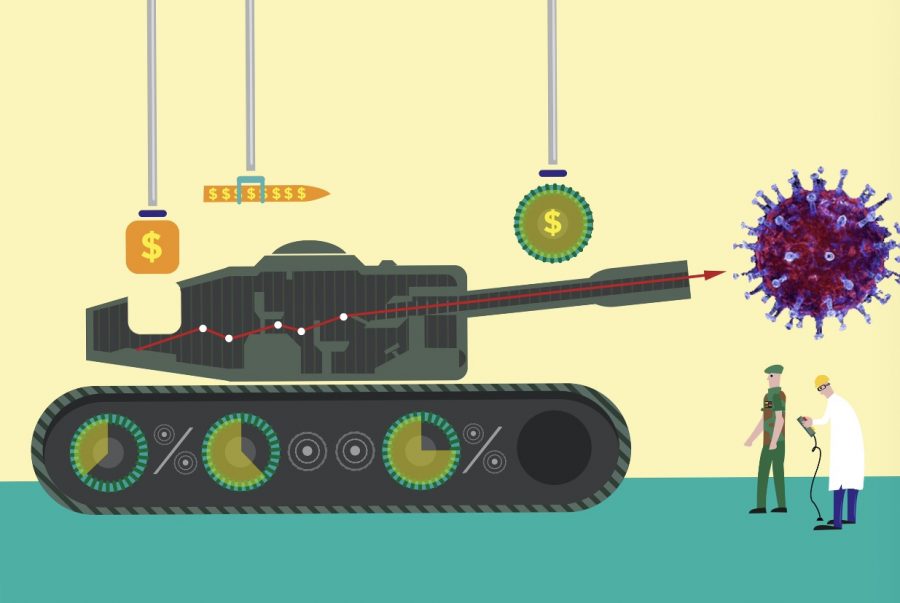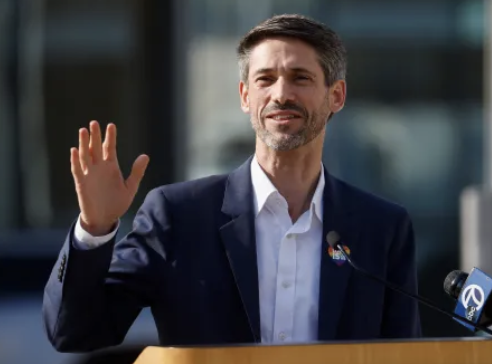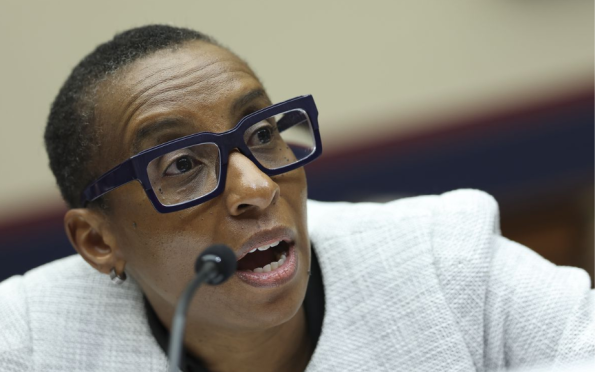Opinions & Analysis: Military vs. Healthcare—Notes on the U.S. Government’s Priorities in Pandemic Times
Covid-19 has highlighted how the American government prioritizes military expenditures over the lives of Americans.
It’s now October of 2021. Covid-19 has stolen the lives of an estimated 708,000 Americans. But amidst arguably the worst public health crisis of this generation, it is clear that the U.S. government has no real sense of urgency in pushing for universal healthcare; a response that no doubt would promote the safety of all. Instead, during this pandemic reality, our country’s leaders would rather pour a staggering $778 billion into the grossly inflated military-industrial complex.
As the U.S. government teeters on the brink of a debt crisis, it is rather telling to break down the Biden administration’s fiscal policy request for 2022. According to the National Priorities Project, the Pentagon already has a budget greater than the next eleven countries—combined.
But instead of cutting back on military spending, President Biden’s policy request proposes to increase the Pentagon budget by $12.3 billion. Coincidentally, the government has set aside just $8.7 billion to fund the entirety of the CDC.
Though it may come as a surprise to many that the Biden administration is prioritizing militarization over public health, this policy decision to “protect American interests” halfway across the world aligns with a recent development in U.S. healthcare.
In 2020, Biden ran on the promise of requiring medical insurers to fully cover the costs of Covid tests, screenings, and vaccinations. But as the pandemic has dragged on, a Kaiser Family Foundation study has found that “72% of the two largest insurers in each state and DC are no longer waiving these costs, and another 10% of plans are phasing out waivers by the end of October.”
Essentially, the government will no longer shield individuals who cannot afford treatment. Communities who are most vulnerable will slip through the cracks, victim to not only the inadequacy but also the sheer apathy of America’s privatized, profit-oriented healthcare system.
Over the past few years, movements calling for Medicare for All, or M4A, have been gaining traction with the public. More and more citizens realize the injustice of healthcare corporations demanding billions of dollars from the people, only for millions to not have their needs met. But public outcry isn’t enough to transform the privatized healthcare industry into a single-payer healthcare system provided for all people—even amidst Covid-19.
It is in times like these where our political representatives should prioritize the fight for universal healthcare above all else. But the momentum of M4A is fading, with even the most “progressive” of politicians abandoning the movement. In December of 2020, the Squad had the opportunity to force the vote for M4A to even be considered in the House—but they refused to do so for the sake of political posturing and “compromise.”
Congress is willing to spend an exorbitant amount of American taxpayer dollars to wage wars abroad, yet will not hear a single proposal for a solution that covers the collective health of their own society.
U.S. politicians have dropped the fight for universal healthcare, and the pandemic has illustrated that current society favors militarism, profit, and violence over lives. Until the public rallies behind a concrete preferential option for the most marginalized, our government will continue to deny the people the most basic of human rights.












